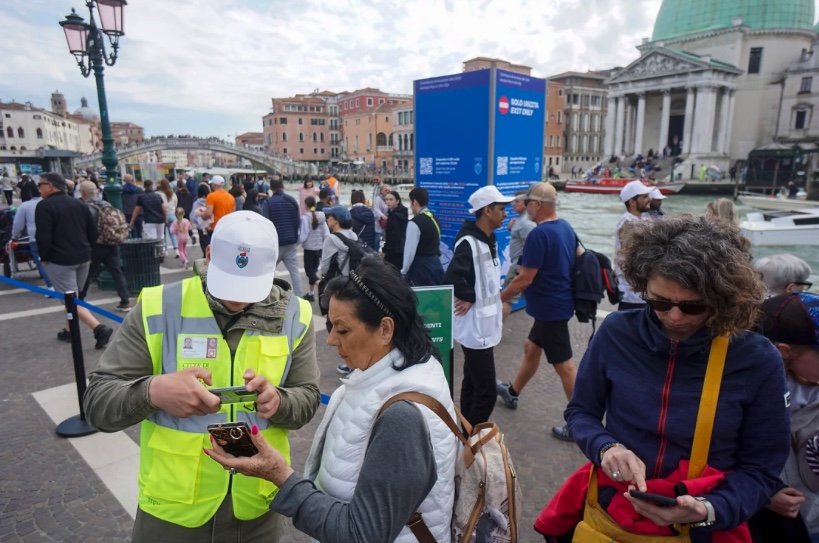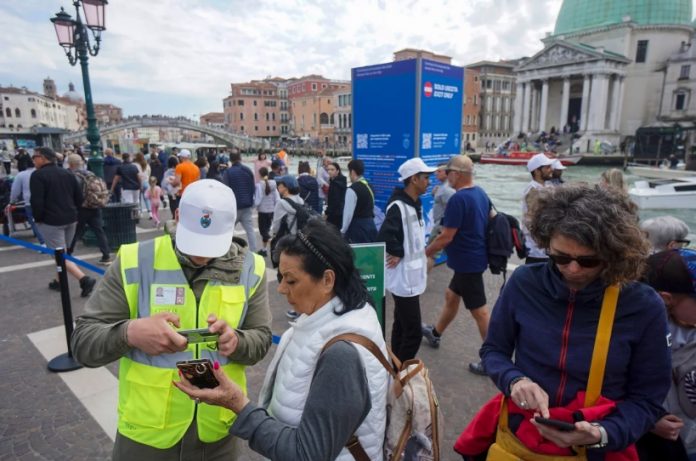ขณะนี้จุดหมายปลายทางกว่า 60 แห่งทั่วโลกเรียกเก็บภาษีนักท่องเที่ยว ตั้งแต่ภาษีทั่วประเทศในไอซ์แลนด์ไปจนถึงเมืองต่างๆ ทั่วสหรัฐอเมริกา แม้ว่าบางประเทศ เช่น ฝรั่งเศส (ซึ่งเริ่มใช้ภาษีนักท่องเที่ยวครั้งแรกในปี 1910) ก็มีมาตรการเหล่านี้มาเป็นเวลานาน แต่ส่วนใหญ่ก่อตั้งขึ้นในทศวรรษหรือสองปีที่ผ่านมา ก่อนที่โรคระบาดจะหยุดการท่องเที่ยว ปี 2563 ถูกเรียกว่า “ปีแห่งภาษีนักท่องเที่ยว” โดยอัมสเตอร์ดัมจะเรียกเก็บเงินจากนักท่องเที่ยวเช่นเดียวกันกับเมืองต่างๆ อย่าง ปารีส มอลตา และแคนคูน การแนะนำภาษีเหล่านี้มักเป็นเรื่องที่ถกเถียงกัน โดยหน่วยงานอุตสาหกรรมทำให้เกิดความกังวลเกี่ยวกับผลกระทบด้านลบที่อาจเกิดขึ้นกับการท่องเที่ยว
ผลกระทบของการเก็บภาษีการท่องเที่ยวต่อจำนวนนักท่องเที่ยวมีความซับซ้อน โดยการศึกษาต่างๆ แสดงผลที่หลากหลาย บางคนแนะนำว่าภาษีเหล่านี้เป็นอุปสรรคต่อการท่องเที่ยวในสถานที่เช่นหมู่เกาะแบลีแอริกและมัลดีฟส์ ซึ่งอาจขัดขวางนักท่องเที่ยวภายในประเทศ อย่างไรก็ตาม ในบาร์เซโลนา จำนวนนักท่องเที่ยวเพิ่มขึ้นจาก 7.1 ล้านคนในปี 2556 เป็น 9.5 ล้านคนในปี 2562 แม้ว่าจะมีการเก็บภาษีก็ตาม อิตาลีซึ่งมีการศึกษาอย่างกว้างขวาง ยังไม่มีความเห็นพ้องต้องกันที่ชัดเจน การศึกษาชิ้นหนึ่งพบว่าจำนวนนักท่องเที่ยวลดลงในหนึ่งในสามเมืองชายทะเล ในขณะที่อีกเมืองหนึ่งในโรม ฟลอเรนซ์ และปาดัวไม่แสดงผลกระทบเชิงลบต่อการท่องเที่ยว โดยรวมแล้ว ผลกระทบของภาษีการท่องเที่ยวต่อจำนวนนักท่องเที่ยวยังไม่สามารถสรุปได้
โดยทั่วไปรายได้จากภาษีการท่องเที่ยวจะสนับสนุนด้านการตลาด การสร้างแบรนด์ และโครงการโครงสร้างพื้นฐานด้านการท่องเที่ยว เช่น ห้องน้ำสาธารณะ ทางเดิน และการพัฒนาขนาดใหญ่ เช่น ศูนย์การประชุมของ Orange County ในประเทศหมู่เกาะแบลีแอริก รายได้ดังกล่าวกล่าวถึงผลกระทบด้านลบของการท่องเที่ยวที่มีต่อสิ่งแวดล้อม วัฒนธรรม และสังคม รวมถึงการจัดการขยะและการอนุรักษ์แหล่งที่อยู่อาศัยตามธรรมชาติและอนุสาวรีย์ โดยรวมแล้ว ภาษีการท่องเที่ยวดำเนินการได้สำเร็จโดยไม่ขัดขวางนักท่องเที่ยว ผลการวิจัยแสดงให้เห็นว่านักท่องเที่ยวยินดีจ่ายมากขึ้นเมื่อพวกเขารู้ว่าการจัดเก็บภาษีช่วยปรับปรุงประสบการณ์ของพวกเขาหรือสนับสนุนการท่องเที่ยวแบบยั่งยืน
ในเดือนเมษายน ปี 2567 เวนิสเริ่มเรียกเก็บเงินสำหรับนักเดินทางแบบไปเช้าเย็นกลับ 5 ยูโร (197.46 บาท) ในวันที่มีนักท่องเที่ยวหนาแน่น เวนิสซึ่งมีผู้มาเยือน 30 ล้านคนต่อปี ไม่ใช่แค่เมืองเดียวที่สำรวจภาษีการท่องเที่ยวใหม่ ในสหราชอาณาจักร Kent กำลังพิจารณาภาษีสำหรับการพักค้างคืน สกอตแลนด์วางแผนที่จะแนะนำค่าธรรมเนียมสำหรับผู้มาเยือนเอดินบะระภายในปี 2569 และเวลส์มีกำหนดจะผ่านกฎหมายที่คล้ายกันในปลายปีนี้ ตามข้อมูลของ Swiss Info หน่วยงานท้องถิ่นในเลาเทอร์บรุนเนน ซึ่งเป็นหุบเขาในเบอร์นีส โอเบอร์แลนด์ ของสวิตเซอร์แลนด์ ได้จัดตั้งคณะทำงานเพื่อพัฒนากลยุทธ์ใหม่เพื่อจัดการกับนักท่องเที่ยวล้นเมืองด้วยเช่นกัน
More than 60 locations worldwide impose tourist taxes, and the list is growing.

Over 60 destinations worldwide now impose tourist taxes, from nationwide taxes in Iceland to various towns across the US. While some, like France (which introduced the first tourist tax in 1910), have had these in place for a long time, most were established in the last decade or two. Before the pandemic halted tourism, 2020 was called the “year of the tourist tax,” with Amsterdam joining cities like Paris, Malta, and Cancun in charging visitors. Introducing these taxes has often been controversial, with industry bodies raising concerns about the potential negative impacts on tourism.
The impact of tourism levies on visitor numbers is complex, with studies showing mixed results. Some suggest these taxes hinder tourism in places like the Balearics and the Maldives, potentially deterring domestic tourists. Yet, in Barcelona, visitor numbers rose from 7.1 million in 2013 to 9.5 million in 2019 despite the levy. Italy, extensively studied, shows no clear consensus. One study found reduced tourist flow in just one of three seaside towns, while another on Rome, Florence, and Padua showed no negative effects on tourism. Overall, the effect of tourism taxes on visitor numbers remains inconclusive.
Tourism tax revenues typically fund marketing, branding, and tourism infrastructure projects, such as public restrooms, paths, and large developments like Orange County’s convention centre. In the Balearics, the revenue addresses tourism’s negative impacts on the environment, culture, and society, including waste management and conserving natural habitats and monuments. Overall, tourism taxes are successfully implemented without deterring visitors. Research shows tourists are more willing to pay when they know the levy improves their experience or supports sustainable tourism.
In April 2024, Venice began charging day-trippers €5 ($5.40) on peak days. Venice, with 30 million annual visitors, isn’t alone in exploring new tourism taxes. In the UK, Kent is considering a tax on overnight stays. Scotland plans to introduce a fee for Edinburgh visitors by 2026, and Wales is set to pass similar legislation later this year. According to Swiss Info, the local authority in Lauterbrunnen, a valley in Switzerland’s Bernese Oberland, has established a working group to develop new strategies to address overtourism.
By CNN NEWS

















